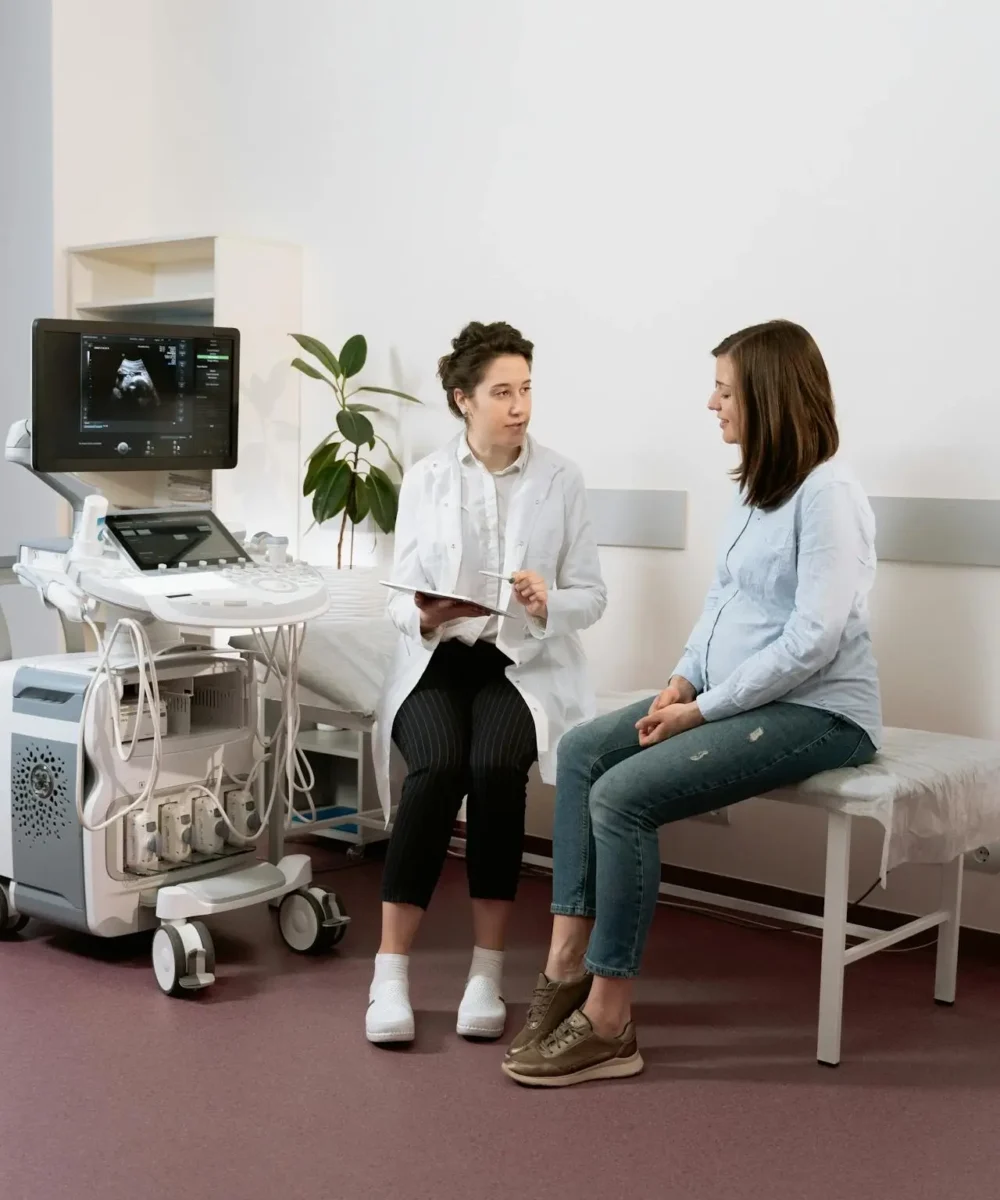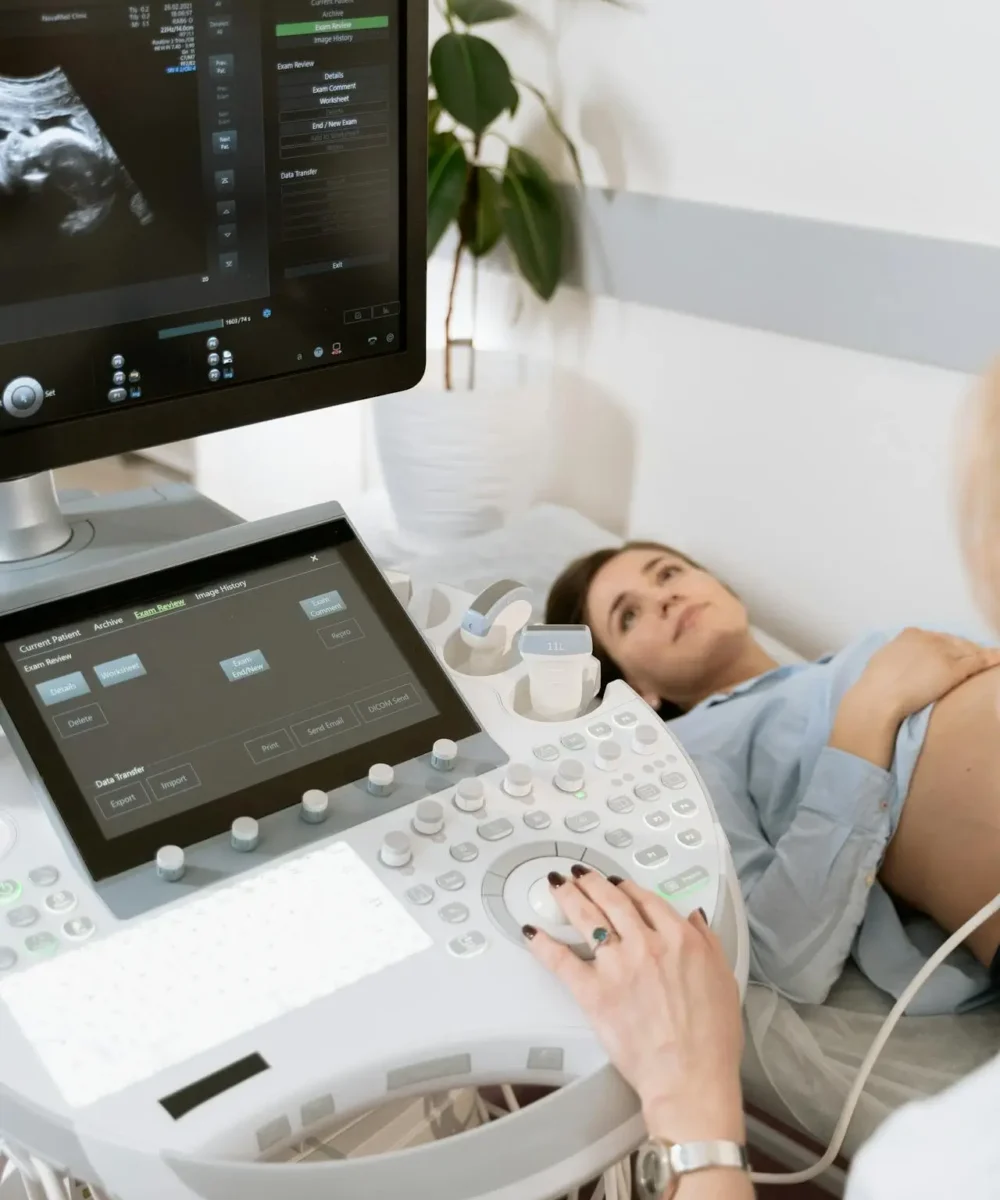
Routine Gynecological Exams
Routine gynecological exams are yearly screenings that help women monitor their health. By undergoing routine check-ups, they can detect potential issues early and treat ongoing conditions. A typical appointment includes a review of the patient’s medical history and physical examination of the breast tissue and pelvic area. These exams are an opportunity for women to discuss concerns like their menstrual cycle or family planning. Physicians help patients make informed decisions by offering guidance on preventive care and lifestyle. When patients make gynecological check-ups a part of their schedule, they are being empowered to take an active role in their health.

Pap Smears and Cervical Cancer Screening
Pap smears and cervical cancer screening are crucial components of women’s health care aimed at early detection of cervical cancer and its precursors. During a Pap smear, a healthcare provider collects cells from the cervix to test for abnormalities, which can indicate the presence of precancerous changes or HPV (human papillomavirus) infection. The CDC and various health organizations recommend that women begin cervical cancer screening at age 21, with specific guidelines for frequency based on age and health history. Early detection through these screenings significantly increases the chances of successful treatment and can help prevent cervical cancer from developing. Alongside Pap smears, HPV testing may be conducted to assess the risk of cervical cancer. Regular screenings provide women with valuable information about their reproductive health and empower them to make informed decisions regarding prevention and treatment, ultimately reducing the incidence of cervical cancer in the community.
Pap Smears and Cervical Cancer Screening
Gynecological testing is crucial for detecting abnormalities that can lead to long-term illnesses like cancer. Among the most common tests are pap smears, during which the gynecologist collects cells from the cervix to check for the presence of precancerous changes or HPV (human papillomavirus). According to the CDC—and gynecological associations—, papa smears should be performed at least once a year, beginning at age 21. When caught early, chances of successful treatment for HPV increase significantly and risk of developing cervical cancer decreases.


Breast Examinations
Just like pap smears, breast examinations are a crucial part of the recommended yearly exams and are performed to detect any abnormalities and signs of breast cancer. Apart from the checkups at the doctor’s office, patients are encouraged by healthcare providers to perform self-examinations at home. When at the office, the physical examination focuses on the breast tissue and surrounding areas.
After 40, patients should get a mammogram as well as a regular breast examination. This is an x-ray imaging technique that physicians use to examine the breast for the early detection of cancer and other breast diseases.

Contraceptive Counseling and Management
Contraceptive counseling and management are essential services provided by healthcare professionals to help women make informed choices about birth control options. During counseling sessions, healthcare providers discuss various contraceptive methods, including hormonal options (like pills, patches, and injections), intrauterine devices (IUDs), barrier methods, and permanent solutions such as sterilization. Providers assess individual health needs, lifestyle preferences, and any contraindications to recommend the most suitable options. This personalized approach ensures that women can choose methods that align with their reproductive goals, whether they are seeking to prevent pregnancy, plan for future children, or manage health conditions. Counseling also includes education on the proper use of contraceptives, potential side effects, and the importance of regular follow-up appointments. By offering comprehensive contraceptive management, healthcare providers empower women to take control of their reproductive health, supporting informed decision-making and promoting overall well-being.
Contraceptive Counseling and Management
Contraceptive care is an essential part of our gynecology services at Riviera Medical Center. This includes not only counseling sessions to help patients decide what the best birth control method for them is, but also follow-up on how they affect the patient. Choices include:
Our specialists at Riviera take on a highly personalized approach to ensure that the patient’s election aligns with their reproductive goals and lifestyle.


Management of Menstrual Disorders
Every woman is different, and so are menstrual cycles. Some patients suffer from abnormalities in their menstrual cycles that constitute disorders, including:
- Irregularity
- Heavy bleeding
- Severe pain
- Extreme PMS
- Absence of menstruation
At Riviera Medical Center, our expert gynecologists offer expert guidance to navigate these disorders and treat them effectively. Treatment options include:
- Hormonal therapies
- Medication
- At-home care
Your physician will evaluate what the best treatment you should follow. In some cases, further testing may be required so as to identify whether the underlying cause is polycystic ovary syndrome (PCOS) or fibroids.

Pregnancy Care and Prenatal Visits
Pregnancy care and prenatal visits are crucial for monitoring the health of both the mother and the developing fetus throughout gestation. These visits typically begin shortly after conception and continue regularly until delivery, providing comprehensive assessments and support. During prenatal visits, healthcare providers perform vital checks, including measuring the mother’s weight, blood pressure, and fetal heart rate, as well as conducting necessary laboratory tests and ultrasounds. These appointments are opportunities to discuss nutrition, exercise, and any concerns related to pregnancy. Providers also educate expectant mothers about the stages of pregnancy, childbirth options, and newborn care. Regular prenatal care is essential for identifying potential complications early, ensuring a healthy pregnancy, and promoting positive outcomes for both mother and baby. By fostering a supportive environment, healthcare professionals empower women to engage in their prenatal health, ultimately contributing to the well-being of families and communities.
Pregnancy Care and Prenatal Visits
OB/GYNs at Riviera Medical Center offer pregnancy care and prenatal visits for mothers. Consultations begin shortly after conception and extend until delivery. During the appointments, our experts perform vital checks and address any arising common issues.
The number of visits and types of exams change depending on the stage of your pregnancy. Exams include:
Providers also educate expectant mothers about the stages of pregnancy, childbirth options, and newborn care.


Menopause Management
At Riviera Medical Center, we offer menopause guidance and management, which aims at addressing the physical and emotional symptoms associated with the transition into menopause. Typically, it happens around the ages of 45 and 55, but it can start early in some cases.
Common symptoms of menopause include:
- Hot flashes
- Night sweats
- Mood swings
- Changes in sleeping patterns
In order to navigate these transitions, healthcare providers offer personalized treatment options that might include hormone replacement therapy (HRT) or non-hormonal alternatives. Additionally, consultations help patients understand the changes and learn what to expect as they move into the next stage of their lives.

Treatment of Gynecological Infections
The treatment of gynecological infections involves diagnosing and managing a variety of infections that can affect women’s reproductive health, including bacterial vaginosis, yeast infections, and sexually transmitted infections (STIs). Healthcare providers conduct thorough evaluations, including medical history and laboratory tests, to identify the specific type of infection. Treatment may include prescribed medications such as antibiotics or antifungals, depending on the infection’s nature. Education on prevention, such as practicing safe sex and maintaining proper hygiene, is also crucial in managing these conditions. Regular screenings for STIs and prompt treatment of infections are essential to prevent complications and long-term health issues. By addressing gynecological infections effectively, healthcare professionals promote women’s health, enhance reproductive well-being, and reduce the risk of future infections. Open communication between patients and providers is vital to ensuring timely diagnosis and appropriate management.
Treatment of Gynecological Infections
Gynecological infections affect at least one in five people in the U.S. With such a high prevalence, at Riviera we are proud to offer top-of-the line treatment options. Common infections include:
- Bacterial vaginosis
- Yeast infections
- STIs like chlamydia, gonorrhea, or HIV.
Our providers not only perform tests to offer an accurate diagnosis, but also offer different and customized treatment options.
Additionally, patients find advice on safe sex practices, maintaining proper hygiene, and overall gynecological care that promotes prevention. Regular checkups are essential to prevent long-term complications and reproductive issues.


Ultrasound and Imaging
Among the testing included in routine checkups, as well as specific diagnostic tests, are ultrasound and imaging tools. Ultrasound uses sound waves to create images of the ovaries, uterus, and other pelvic structures. As a result, healthcare providers can assess conditions such as cysts, fibroids, and abnormalities.
Additionally, ultrasound is used during pregnancy to check on the development of the fetus and identify potential issues down the line. Other imaging techniques like MRI or CT scans are used to provide more details on the information obtained.
